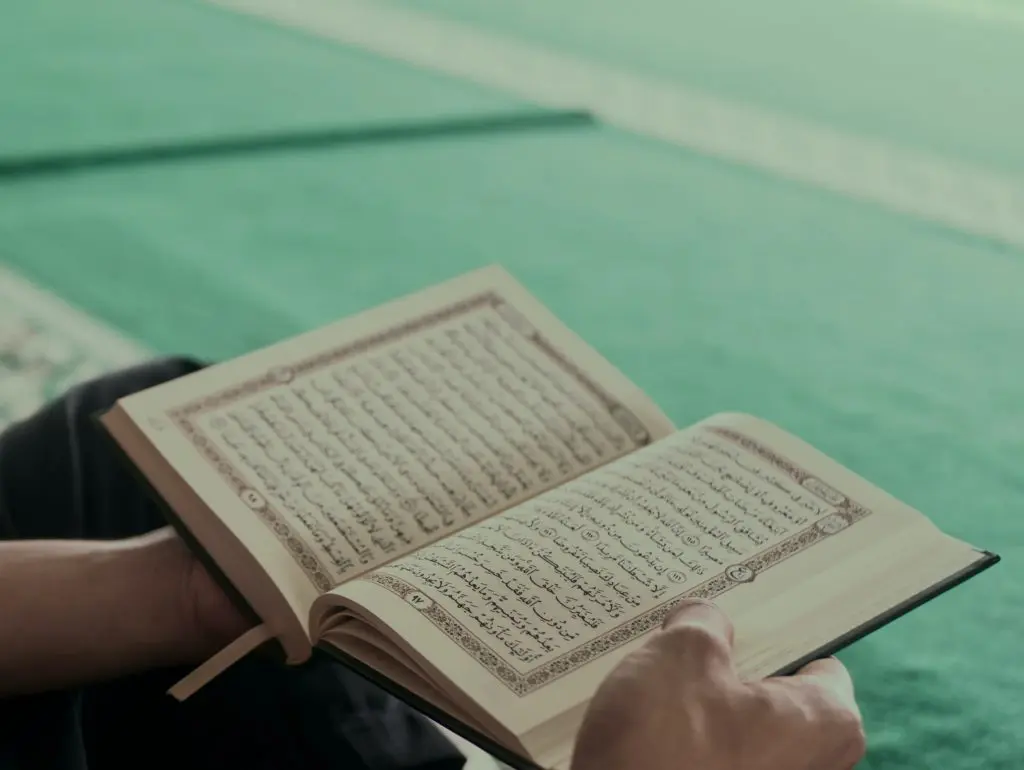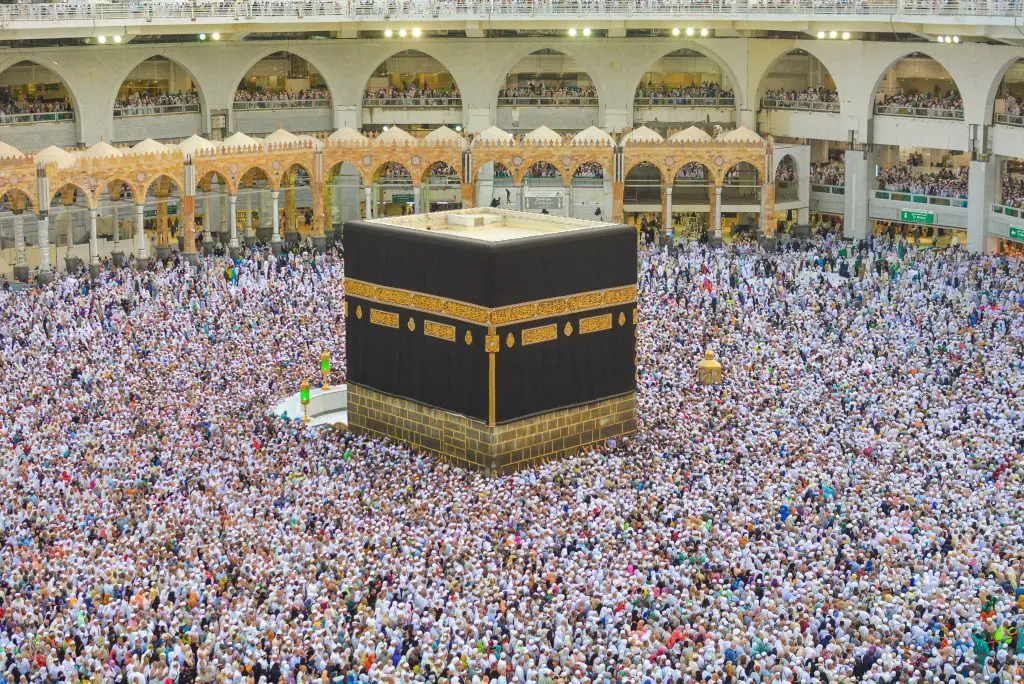Hiking or camping can be one of the most enjoyable experiences. Nothing truly compares to the magnificence of the great outdoors and allows you to reconnect with nature. However, if you are a Muslim man or woman, you may be worried about completing your five obligatory prayers while on your hiking or camping trip.
Below, we are going to discuss and show you how to complete your Islamic prayers while hiking or camping. And whether you’re camping for a couple of days, ten-days, or for a whole month, this guide will help you to maintain your prayers while still continuing to enjoy your camping and hiking adventure.
What Are the Obligatory Prayers in Islam?
Prayer is one of the fundamental requirements for any Muslim. In fact, prayer is listed as the second pillar from five in Islam, coming in only after the shahada or profession of faith. Due to its importance, many observing Muslims make great effort to ensure that each prayer is completed on time and in a timely manner.
Muslims, or followers of the Islamic religion, believe in maintaining a direct connection to Allah, or God, through these daily acts of worship. For this reason, while camping or hiking with a group of practicing Muslims, it is considerate to be mindful of their obligation and to allow them the time needed to complete their prayers.
In Islam, a Muslim is obligated to complete 5 daily prayers. Each prayer is offered at a different time throughout the day and each prayer has unique requirements. In Islam, the five obligatory prayers are as follows:
- Fajr
- Dhuhr
- Asr
- Maghrib
- Isha

When Do Muslims Offer Each Prayer?
Dependent on time zone and season, Muslim prayer times can vary. However, generally, the prayer times are segmented and divided into five separate blocks of time. While these are general timings, a practicing Muslim will typically utilize a prayer calendar or prayer app to ensure they complete their prayers on a timely manner.
In general, the prayer times for Muslims are as follows:
- Fajr or the sunrise prayer is to be performed before the sun rises
- Dhuhr or the noon prayer is to be performed closely after 12:00 PM
- Asr or the afternoon prayer is to be performed close to 4:00 PM
- Maghrib or the sunset prayer is to be performed once the sun has begun to set
- Isha or the night prayer is to be performed sometime after the Maghrib prayer and once it is dark outside
Listen to the Athan, or Muslim call to prayer!
When Do Muslims Offer Each Prayer?
While praying at a local mosque or masjid is encouraged, it is definitely not required. Rather, Muslims are generally allowed to pray in most any location, so long as it is clean, i.e., Muslims are not permitted to complete any prayers in a bathroom. However, while hiking or camping, so long as the ground beneath them is clean and cleared of debris, Muslims are allowed to offer their prayers there.
However, before beginning any prayer, a Muslim must have the right niyah or intentions. This intention does not have to be verbally stated, but generally should be within ones heart and should be to perform the prayer for the sake of God and God alone. For more information on niyah and making the proper intentions before prayer, we highly recommend watching the below video:
Once a Muslim’s niyah has been completed, they will then perform the wudu or purification. This is a simple process and is both a physical and spiritual act. Completing the wudu before prayer is obligatory for any Muslim who is not in a state of wudu.
A Muslim completes wudu by following the steps in each order, which were prescribed by the Islamic Prophet Muhammed. Similarly, Prophet Muhammed stated, “the prayer of a person who does not perform ablution is not valid.”
As-such, Muslims go to great lengths to ensure that they are able to complete the wudu process before any prayer is completed. The steps to completing wudu are as follows:
- Begin by having the right niyah and saying ‘bismillah’ which means “in the name of Allah”
- Wash both hands with water, begin by having your left hand wash your right hand, all the way up to your wrists and in between your fingers. Do this three times. Next, repeat the process and wash your left hand with your right hand three times.
- With your right hand, cup some water and rinse your mouth three times. Swish the water in your mouth to thoroughly cleanse the mouth and then spit it out.
- Using your right hand, cup water and rinse your nose three times. Partly inhale or sniff the water into your nose without taking too much which can cause choking. Use your left hand to blow out the water.
- Cup your hands with water and rinse your entire face. Begin with your forehead and bring the water down to your jawline, finishing at your chin.
- Beginning with your right arm, wash the entire arm past the elbows with water. Repeat three times and then do the same on your left arm. Be sure to remove any impediments that may obstruct the water to the skin, including mud, dirt and debris, nail polish, and the like.
- Next, wipe your wet hands through your hair forwards and backwards, i.e., from your forehead to the back of your head and back again to your forehead.
- From there, clean your ears from the inside and the outside. With the index finder, wipe away any dirt or wax in the groves of the ear, use your thumb to clean the back of the ear. The process of wiping the head and ears needs to be done only once.
- Lastly, wash your feet. Begin by washing the right foot, covering from the tip of your toes to just above the ankle. Repeat three times, ensuring to clean in-between each toe. Repeat on your left foot.

What if a Muslim Does Not Have Access to Water or Only Has Limited Access to a Water Source?
In Islam, if a Muslim wishes to make wudu but does not have access to water, or only has limited access to a water source, then they are allowed to make wudu through a process called tayammum, or dry ablution. To perform dry ablution, a Muslim should follow the below steps:
- First, begin by making niyah or intention that this tayammum is for the purpose of prayer
- Strike both hands slightly on pure earth, sand, stone, or concrete
- Shake off hands to remove debris and wipe the whole face with your hands
- Strike both hands slightly on the pure earth again and wipe the right arm to the elbow with the left hand and the left arm to the elbow with your right hand
How Do Muslims Pray?
Once the wudu is completed, a Muslim is now ready to perform the obligatory prayer. To begin with, a Muslim male must wear clothing that covers their naval to their knees. However, it is preferable to cover the shoulders as well. For females, they must wear clothing which covers all of the body, including their head, except for their face and hands.
Once proper clothing has been donned, a Muslim must face towards the direction of Al-Ka’bah. This position is called Qiyaam, and the direction is called Qiblah in Arabic. The Al-Ka’bah is a building in Makkah and is the most important and sacred mosque in Islam.
In North America, the direction of the Qiblah is towards the east with a slight angle towards the north.
To complete the prayer, a Muslim will follow the below steps:
- Stand upright and face the Ka’bah
- Make niyah to perform the prayer you want to pray
- Raise your hands to your ears and say Allahu Akbar which translates to Allah is the Greatest
- Place your right hand over your left hand and look downward to the point where your forehead will touch the ground
- Recite Suratul Fatihah or the first chapter of the Quran
- Thereafter, recite any other passage from the Quran
- Now repeat saying Allahu Akbar and place your hands on your knees. Silently say the words Subhana Rabbiyal Adhim which translates to, “How Perfect is my Lord, the Supreme”, three times
- Then stand up from the bowing position saying, Sami’Allahu liman hamidah which translates to “Allah hears those who praise Him”
- Then say Allahu Akbar and prostate onto the floor, with your forehead, nose, both palms of your hands, your knees, and toes all touching the floor
- Silently recite Subhana Rabbiyal A’la three times, which translates to “How Perfect is my Lord, the Highest”
- Sit up from the floor saying Allahu Akbar with your knees bent and palms placed on them
- Say Allahu Akbar and prostate once morerepeating the phrase Subhana Rabbiyal A’la three times
- Now, repeat the phrase Allahu Akbar and repeat the process, which is called a Rak’ah in Arabic
- However, after completing two Rak’ah’s, remain on your knees and recite the Tashahhud which is an Islamic prayer
In Islam, each obligatory prayer is to be completed at a certain time and with a certain number of Rak’ahs. Below are the number of Rak’ahs that is to be completed for each obligatory prayer:
- Fajr – 2 Rak’ahs
- Dhuhr – 4 Rak’ahs
- Asr – 4 Rak’ahs
- Maghrib – 3 Rak’ahs
- Isha – 4 Rak’ahs

How to Make Praying Easier While Camping or Hiking for Muslims
As a Muslim, it is obligatory to complete the five daily prayers. However, doing so may be difficult, especially while travelling, hiking, or camping. Below are some tips to make completing your daily prayers easier.
- Speak to your friends and camping partners about prayer. Let them know that you will need to step away each day to complete the prayer and its importance to you. Doing so will not only make stepping away easier to complete the prayer but will also help you and your friends deepen your relationships and their understanding of Islam.
- Download a dedicated Islamic prayer app. These apps will not only be able to remind you of the prayer times, but many of them also include an internal compass which will help you to locate the direction of the Qiblah. For backup, consider investing in a compass which can also help you to gauge the general direction of the Qiblah.
- Pack a prayer mat in your camping or hiking backpack. Bringing a prayer mat with you will not only help you to ensure that you don’t pray over any dirt or debris but will also make the prayer more comfortable. We recommend this prayer mat which contains a compass which will help you to ensure you are facing the correct direction.
- Bring ample amounts of water with you to perform wudu. If you fear you will not have access to clean water, don’t be afraid to complete tayammum. Alternatively, you can invest in a water purifier to ensure the water you are making wudu with is clean and pure.
- In addition, be sure to bring a reusable towel with you to dry off with after making wudu. We recommend the Rainleaf Microfiber Towel which is both fast drying and convenient to carry.
- Lastly, be sure to bring a change of clothes to ensure you are properly dressed for prayer. For men, consider purchasing a thobe and for women, consider purchasing an abaya. Bringing a dedicated thobe or abaya will help you to be ready for prayer and to get dressed for it quickly.
Conclusion
Prayer, in Islam, is an obligatory act and although you will be hiking or camping, you should still make every effort possible to complete all five. Doing so within the great outdoors will not only be beneficial but will also help you to connect to Allah and His greatness all around. However, before embarking on your hiking or camping trip, be sure to download a dedicated Islamic prayer app to assist you with both locating the Qiblah and with remembering the prayer times.
